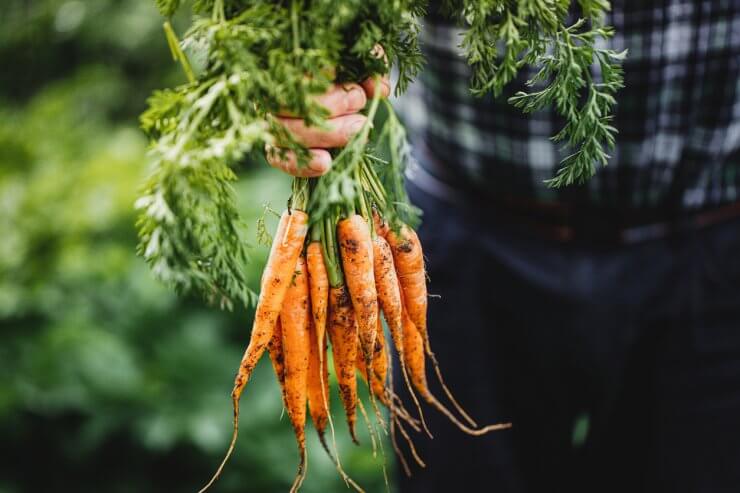
I remember being in third grade and my teacher separated two of the annoying boisterous kids (okay, one of them was me), and said: “You two just can’t be around each other!” We were constantly distracting others and getting into trouble. Well, not unlike a couple of disruptive 8-year olds, there are vegetables that should not be planted together.
Some reasons to separate certain plants are obvious. Like if there’s a major size difference and the taller of the two may make too much shade for the shorter plant. Or the plants may have differing water and fertilizer needs, so when you give one vegetable its proper amount of water, the neighboring plant gets oversaturated and rots.
Some vegetable plants are so alike that they are susceptible to the same diseases. And sometimes plants are toxic to each other (like that high school friend that told you you needed a nose job – you don’t, by the way, you’re perfect!). These plants have chemical properties that stunt the growth or even kill the plants surrounding them. The whole thing is called allelopathy.
Discover 10 top tips for growing, harvesting, and enjoying fruits, vegetables, herbs and more from your home garden—when you access the FREEBIE How to Grow a Vegetable Garden, right now!
Below are seven common vegetables that should not be planted together, and the reasons why.
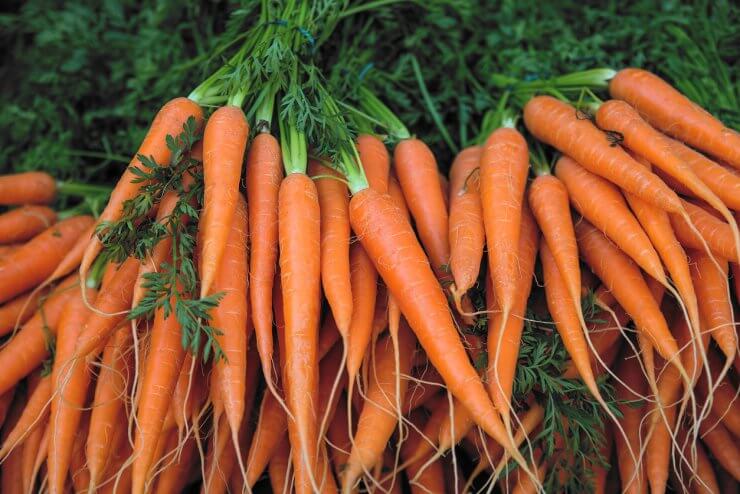
Carrots
Don’t plant carrots next to dill because they’re from the same family of plants which causes them to cross-pollinate. This ends up stunting the growth of the carrots. Similarly, carrots should not be planted next to turnips.
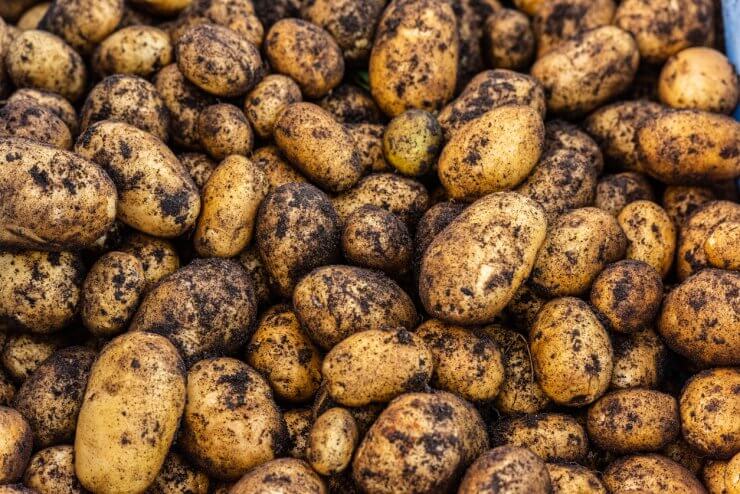
Potatoes
Potatoes are the third-grade bully. They have problems with everybody! Cucumbers, melons, squash, turnips, all fall victim to the potato and its competition for nutrients and moisture. Even members of the potato family, like the tomato, shouldn’t be near the potato because they slow the growth of each other and can be more susceptible to potato blight (Phytophthora). Best to keep these veggies in the corner!
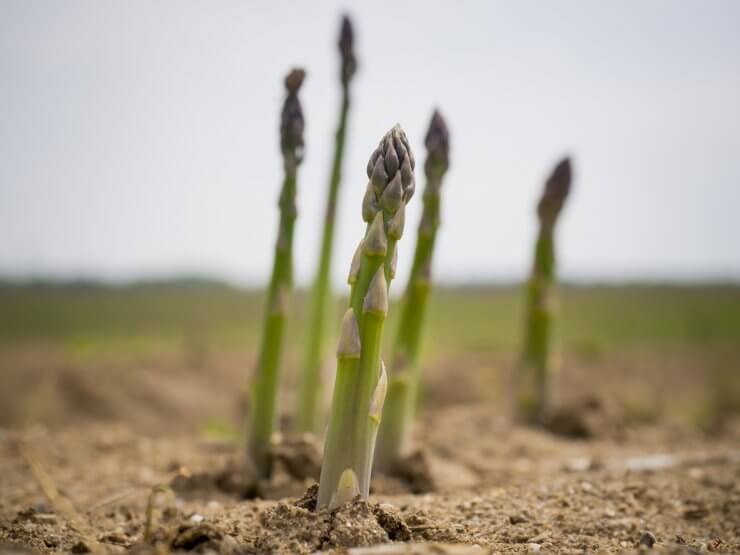
Asparagus
Asparagus is the lone wolf of the class. He’s pretty cool. He wants his space and definitely doesn’t want to hang out with onions, garlic, or potatoes. And no, he doesn’t want to sign up for after-school art classes, either. Gosh!
Discover 10 top tips for growing, harvesting, and enjoying fruits, vegetables, herbs and more from your home garden—when you access the FREEBIE How to Grow a Vegetable Garden, right now!
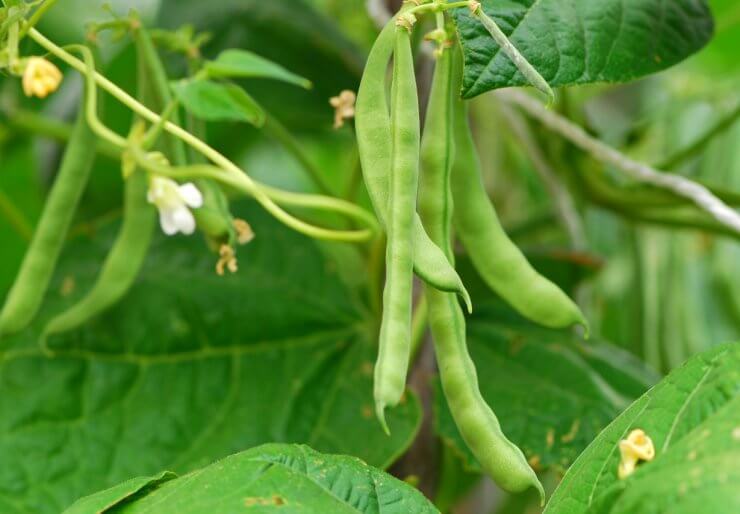
Pole Beans and Peas
All types of pole beans can cause problems for plants like peppers (all varieties) and even beets. These combinations don’t work well because they compete for resources. These are vegetables that should not be planted together.
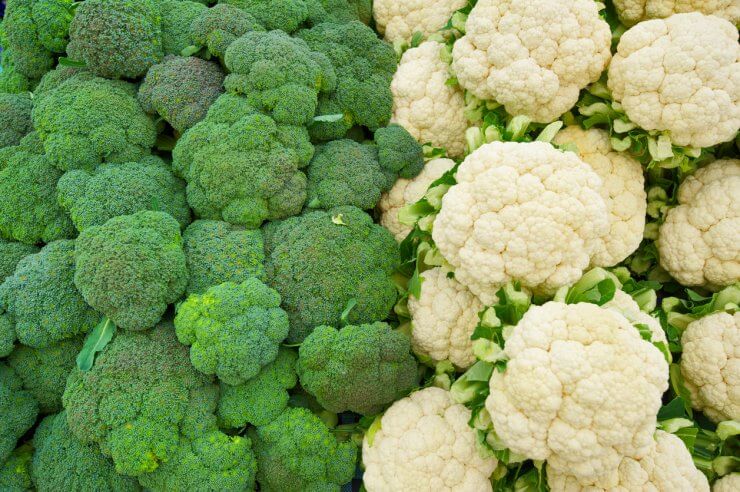
Broccoli and Cauliflower
I think it’s funny how picky broccoli and cauliflower plants can be while growing next to certain types of vegetables, given how picky humans are in eating them! Broccoli and cauliflower won’t do well near peppers, tomatoes, squashes, or strawberries. Technically if you really enrich your soil they can be friends, but in general, brassicas soak up all the nutrients in the soil which makes it hard for other nutrient-needing plants to thrive.
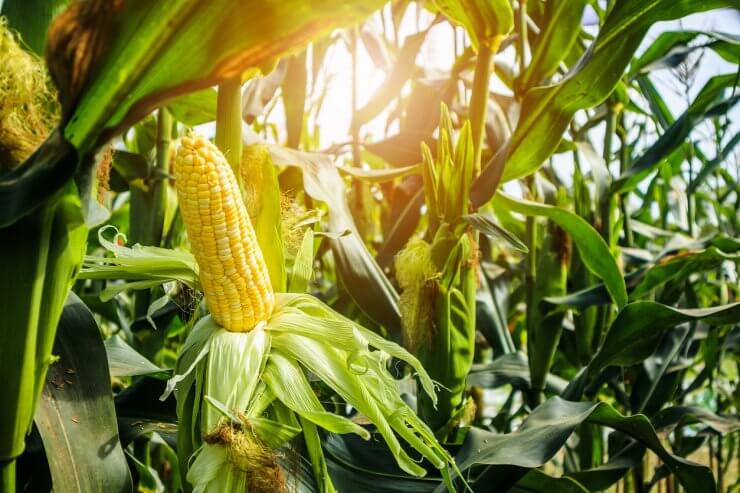
Corn
Planting corn too close to tomatoes is like when moms used to have chicken pox parties in the 80s. Corn and tomatoes are both susceptible to fungal infections and if one gets it, the other one will too. They’re also both susceptible to pests like the cotton bollworm so it’s best to keep them apart.
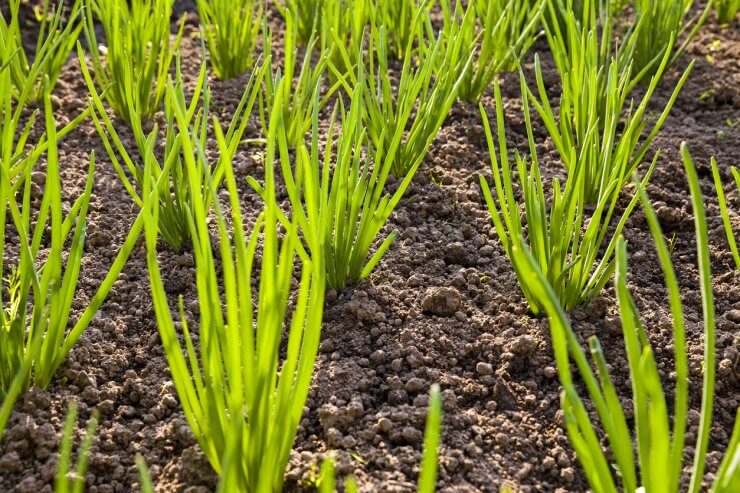
Onions, Garlic, Leeks, Shallots
Onions, garlic, leeks, and shallots can stunt the growth of plants like pole beans and peas. You also don’t want to plant onions, garlic, leeks, and shallots near each other because if one crop comes down with pests (onion maggots) the rest will also fall victim, like a bad case of head lice.
What vegetables do you avoid planting next to each other and why? What do you consider vegetables that should not be planted together? Tell me in the comments!
Discover 10 top tips for growing, harvesting, and enjoying fruits, vegetables, herbs and more from your home garden—when you access the FREEBIE How to Grow a Vegetable Garden, right now!


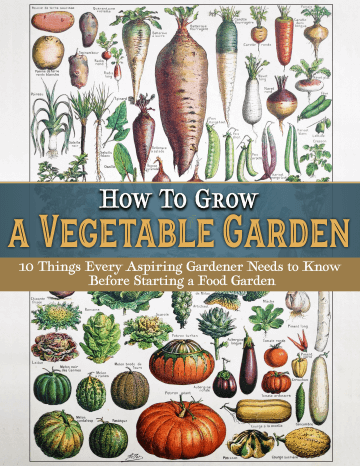


Hi
Is this site in Australia
Food Gardening Network is located in North America.
He is seven years old and artistic, and this is his first time gardening at home. I would love for him to learn how to do gardening the right way. Thank you.
Good day i have learnt i will plant my vegetables by the way you taught me thanks
Can I grow butternut squash near fig trees? Eggplant near a fig tree?
Thank you for all your help.
I would avoid planting eggplants and butternut squash near a fig tree. A fig tree typically has shallow roots and those species will compete for moisture and nutrients.
Potatoes don’t like tomatoes?? How do companires market the “tomato/potato”planting? I interplanted brocoli, beans, tomatoes and summer squash lastyear and had no issues?
The Ketchup & Fries is actually a grafted tomato on a potato plant which is why it works. 😉
I live in Northern Indiana, I planted my 6 year old Chicago figs from pots into the ground last Fall. I packed them heavily with straw and put a fence around them. They look dead!!! Did I kill them?
It might be too early to tell. I’d wait to see if any buds emerge! You’re certainly in the coldest planting zone so if you had a hard winter they might not have survived but I always like to wait until until July before determining a time of death 😉
How do I get the planting booket
How do I get my free planting booklet?
Strawberries have leaf scorch, what to do?????
Scorch is a fungus, so I would recommend removing all affected leaves and any debris in the area. Thinning out leaves to increase airflow can prevent a reoccurrence if it hasn’t gone too far.
I had a tomato and bell pepper cros pollinate once before! So shouldn’t they not be planted close to each other?
Yes they can cross-pollinate. Did this happen from the seeds you collected? Cross pollination doesn’t typically occur right in the garden in the same growing season (except for corn), it happens to the seeds of the plant. So if you got hybrids, I’d ask where you got your seeds!
I have found that cucumbers and winter squash, while compatible, will yield squash and cucumbers with very thick skins. Probably due to cross pollination. Not a problem if you peel or score your cukes. I’m about to find out what pickling them in chunks yields!
Potatoes and Onions can be put in the same plot but it should be pots on one end and onions and the other as both are heavy feeders and love lots of water. The yield is tremendous.
Love that tip Caroline!
According to the Companion Planting Chart (found on this website) bean and beets are compatible but this article says they’re not. I have the same question concerning broccoli/tomatoes. With these contradictions…I’m sooooo cornfused!
Great question! Bush beans and beets are compatible, but pole beans and beets aren’t. I don’t understand the nature of it myself! I’ve also updated the section here on tomatoes and broccoli as well as the chart itself for clarification! 🙂 Thanks for keeping us honest!
Maybe because pole beans are high and shadow the beets?
What about growing tomatoes near a fig tree?
I would not grow anything in the nightshade family like tomatoes near fig trees, as they attract harmful pests.
Great job, Amanda! Good, entertaining clean writing, great pix and terrific hook! (pat who’s this guy stone)